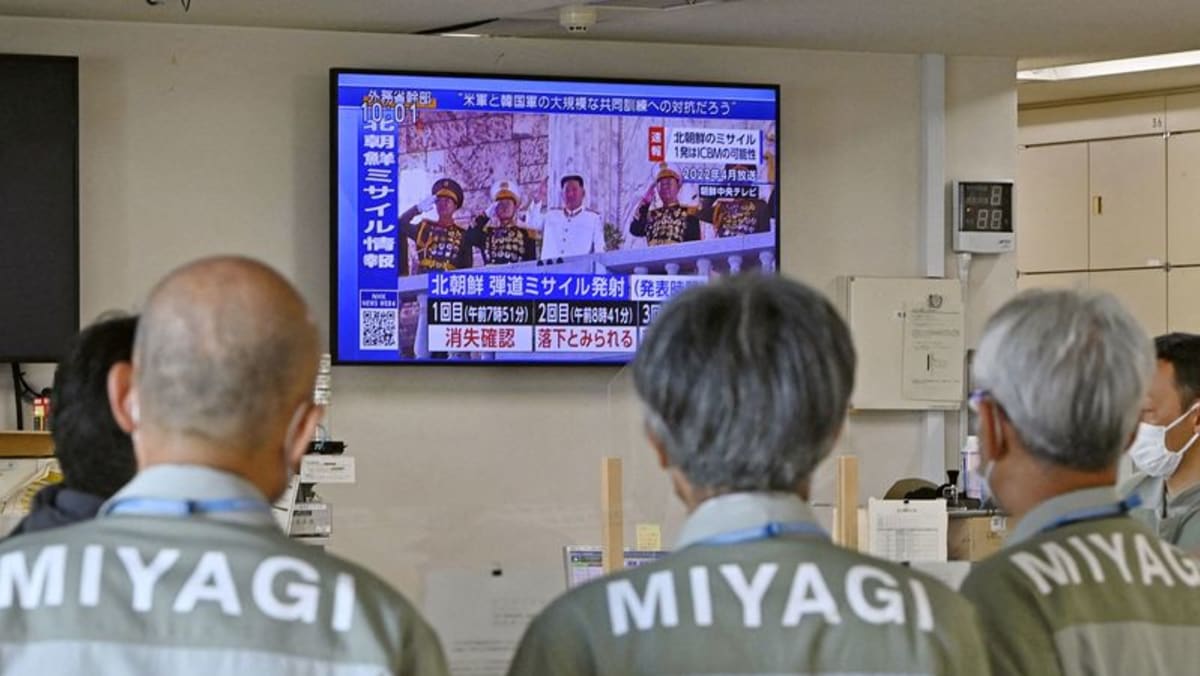
SEOUL: North Korea’s barrage of missiles this week was a vivid illustration of how tracking and intercepting waves of missiles at different altitudes and trajectories is a complex task – even in peacetime.
The challenge was evident in conflicting and sometime contradictory details released by South Korea and Japan about the launches. Early Thursday (Nov 3), the Japanese government said a North Korean missile had flown over its territory, but hours later said it had not.
A former senior US defence official who served in Korea cautioned that the confusion was not a reflection on missile defence capabilities.
“What is happening is both Korea and Japan want to get as much information out as soon as possible, oftentimes sacrificing accuracy for speed in reporting an event,” he told Reuters on condition of anonymity to discuss sensitive matters.
There is a difference between providing the public with a rundown of a missile’s flight, and real-time data the military uses for missile defence, the former official said.
“Full analysis requires a little time to compute, recheck and analyse,” he said. “That is not what happens in our air and missile defence operations centres.”
South Korea and Japan also don’t have the “highly reliable and desirable” space-based infrared sensors available to the United States that promptly detect missile stages as they ignite, said Ankit Panda, a missile expert at the Carnegie Endowment for International Peace.
“The US will always have a better view of these events than Seoul or Tokyo, who rely on a range of surface and sea-based sensors to track missiles,” he said of missile tests.
The sheer number of missiles tested this week highlights North Korea’s efforts to mass produce small but manoeuvrable weapons aimed at evading and overwhelming defences, he added.
“In a conflict, North Korea would be simultaneously salvo launching multiple ballistic missiles; Seoul and Tokyo may be able to employ missile defence systems successfully against a few incoming targets to limit damage, but overall, missile defence will still be a tall task,” Panda said.

